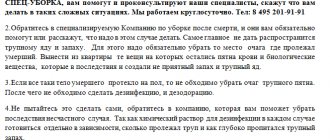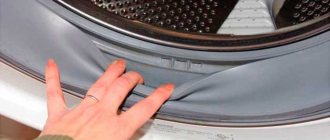When a loved one dies, everyone wants to help his soul rest in peace, and not get stuck between heaven and earth, tied to things, places and unresolved grievances. On this subject, there are concepts more in the esoteric sphere. However, there are ideas about special actions in Orthodox culture. Washing the floors after removing the coffin with the deceased also makes sense from a hygienic point of view.
Orthodox view of the problem
This tradition comes from paganism, however, Orthodox clergy do not treat it as an undesirable superstition.
This ritual of washing after the deceased begins a series of “mortuary” actions for 40 days, while the soul remains near the body, home, and relatives. With the help of the correct algorithm of actions for wet cleaning of an apartment, you can close the way for the soul of the deceased to everything that kept him in life.
In addition, this action helps relatives come to terms with the death of a person, and eliminate obvious reminders of this for future life in this room.
Self-purification of blood and biocontaminants
Step 1 – Put on gloves and other personal protective equipment, determine the extent of the damage. If the affected area is smaller than a dinner plate, proceed to step 2. If the amount of biocontaminants is larger, contact a professional company. Step 2 - Place paper towels over the spill to absorb most of the blood. Dispose of paper towels in a self-sealing bag. Larger cleanup operations should only be performed by professionals trained in biohazard disposal techniques. Step 3 – Cover the area generously with a broad-spectrum disinfectant and allow it to soak in for 10 minutes. After soaking, clean the area from the periphery of the stain to its middle. Dispose of towels in a self-sealing bag. Step 4 - Continue Step 3 until the area is completely clean, making sure to use a clean cloth or paper towels each time.
Biocontaminants Require Precautions Most people are unaware of the risks of exposure to blood and bodily fluids (cerebrospinal fluid, synovial fluid, pleural fluid, pericardial fluid, amniotic fluid, and any fluid containing traces of blood). When these biohazards occur, proceed with caution. Risks may be limited by the use of personal protective equipment.
Opinion of esotericists
They also emphasize the importance of wet cleaning to prevent harm to living people from the restless soul of the deceased.
A few rules for cleaning after removing the coffin:
- Cover all reflective surfaces to avoid a “mirror trap” for the soul.
- You need to wash starting from the walls and corners, heading towards the place where the coffin stood.
- Cleaning equipment should be thrown away after use.
- After cleaning, water is poured outside and not into the toilet.
Rational approach
Contemporaries deny all theories of the past and believe that cleaning the premises after death can be done immediately after the funeral.
Firstly, it is correct from an aesthetic point of view. When a deceased person has been in the house for a long time, a specific smell appears. If you do not clean the room in time, it can be absorbed into furniture and clothes, which is not very pleasant.
In the first three days, relatives are drowned in sorrowful troubles. But after the burial the house must be clean.
A wake is coming after 9 days, and then 40. Which means the apartment must be in proper condition.
Secondly, it is common to think that business and fatigue from it distract from mourning thoughts. This makes it easier to let go of the difficult and sad situation itself.
What happens if you don’t wash the floors after a deceased person?
If you do not drive heavy energy out of the door, the soul of the deceased will bring destruction and negativity into the lives of loved ones.
Esotericists consider such phenomena after the death of a person to be the consequences of incorrectly performed rituals or neglect of them:
- serious illness of an apartment resident,
- his imminent death
- serious damage to equipment and furniture,
- destruction of a house as a result of a cataclysm or man-made incident,
- accidents and failures,
- quarrels and divorces,
- nightmares.
Corpse smell
Accidents or injuries involving blood and biological hazards may be accompanied by a cadaverous odor. More often this happens when a lonely person dies or a person who is not visited by loved ones. It is not uncommon for neighbors to discover his absence only when the cadaverous smell begins to fill the corridors of the house. The strength of the cadaveric odor depends on the duration and conditions in which the corpse was kept. Blood and body fluids penetrate deep into the surfaces, and sometimes even to the lower floor. Cleaning an apartment after the dead, cleaning a wall spattered with blood, a dirty carpet, eliminating the smell of corpses is work that is burdensome for grieving loved ones. You must not leave a single drop of blood or body fluid, otherwise the cadaverous smell will persist.
Cleaning after the death of a person and transportation to the morgue
It is contraindicated to do such cleaning yourself without protective equipment, especially if the body has lain dead for several days. After the first day, rotting began and cadaveric poisons were released into the air. Inhaling such poisons is dangerous and may cause nausea, vomiting, dizziness, diarrhea and fever. Prolonged inhalation of poisons and tactile contact with decaying flesh can be fatal.
When a corpse is brought home from the morgue, it does not pose a danger, since it has undergone the necessary hygienic procedures, preservation and embalming. In the meantime, while the body was in the morgue, the apartment could have time to be cleaned by special cleaning teams.
Therefore, you can safely wash the floors of anyone and not worry about contamination.
What is included in the cleaning process
- Inspection of the emergency site;
- Elimination of biological contaminants and residues of human and animal life;
- Dismantling and disposal of contaminated surface areas (if necessary);
- Identification of objects and things that are contaminated or strongly saturated with a corpse odor for removal and further disposal.
- We remove dead animals if available;
- Destruction of insects (bugs, cockroaches, flies, etc.);
- Dismantling and disposal of unnecessary furniture and washing of the remaining ones;
- Preservation and transfer to the client of discovered documents, photographs and other valuables;
- Dry cleaning of upholstered furniture on site;
- Cleaning of plumbing equipment (bathtubs, sinks, toilets, faucets, heated towel rails). Removing limescale, rust, yellow marks;
- Dust removal, dry cleaning of undamaged carpets, cleaning of doors and windows;
- Disinfection of premises using professional products that destroy pathogenic viruses;
- Special treatment to kill odor-causing microbes;
- Wet and antiseptic surface treatment;
- Elimination of corpse odor by treatment with aerosol mist and an ozone generator.
We also provide personal protective equipment to our customers if they require access to the affected area. Our goal is to minimize the risk of infection. Improper handling of blood and body fluids may result in health and safety risks.
FOR YOUR INFORMATION…
- Some strains of E. coli can live more than 15 weeks on wet surfaces and more than 4 days on hard, dry surfaces. Almost everyone has some risk of infection.
- Norovirus (“stomach flu”) is a virus with severe intestinal symptoms (vomiting, diarrhea, fever), which is transmitted by contact with a contaminated surface, with an infected person, or with contaminated food or water. Norovirus can survive for days or weeks on hard surfaces.
- C. difficile is a bacterium that causes a severe infection of the rectum that can live on hard surfaces and tissues for months. Many people suffer from it every year.
- MRSA (Methicillin-resistant Staphylococcus aureus) - "Staphylococcus aureus" - which has become resistant to antibiotics used to treat common staph infections. MRSA is contagious and can survive for several weeks on surfaces.
- The number of people infected with hepatitis B and C is increasing. Hepatitis B is many times more contagious than the AIDS virus, while hepatitis C can survive outside the body at room temperature for up to 3 weeks. Any traces of blood, including dried blood, can be infectious.
APPROXIMATE DATES FOR CLEANING AN APARTMENT
- up to 30 m2 - 1 day;
- up to 70 m2 - 2-3 days;
- up to 100 m2 - 3-4 days.
Factors influencing the cost of cleaning apartments after death
The cost of cleaning an apartment after death is calculated individually, because... it depends on the area and degree of contamination, as well as on:
- The number of things (garbage) to be disposed of;
- The need to pack preserved items;
- Number of layers of wallpaper to be removed;
- The need for dismantling (local dismantling) of interior items (floors, interior doors, mezzanines);
- Preparation of surfaces for finishing work;
- Treatment of walls, ceilings and floors against unpleasant odors;
- Treating premises against insects;
NOTE!
- To more accurately calculate the cost of cleaning, a specialist visit is required;
- Departure of a specialist within the Moscow Ring Road is FREE.
What to do after treatment
The duration of disinfection depends on the chosen treatment method. After completing the work, you must follow the instructions of the Moscow Sanitary and Epidemiological Station specialist.
Cleaning after treatment can be carried out by SES workers. They will ventilate and vacuum the floor covering.
You can do subsequent cleaning yourself. But psychologically it will be much more comfortable to enter a completely cleaned home. This part of the work will also be performed by SES workers by agreement. After final cleaning, furniture, curtains, and carpets are returned to their places. Sanitation after the deceased is considered completed.
Is it possible to make repairs
Repairs can be made after a funeral, but only after 40 days have passed after death
. The soul of the deceased visits from time to time to see how loved ones live. She would like to see a familiar environment; changes can anger the spirit.
After 40 days, at a minimum, you will have to replace the bed on which the deceased slept, as well as the bed (sofa, floor or staircase covering, chair, etc.) that became the deathbed. The bed of a dead person cannot be used by his bloodline. It can be given away or sold. There is no need to install a new bed; use the freed up space as you see fit.
The place of death will continue to exude necrotic energy for several years. Therefore, it is necessary to replace everything that came into contact with the dying person, be it the floor covering where he fell, or furniture and bedding. As a rule, such things are thrown away or burned. In the villages they do it a little differently - they take it to the chicken coop for three so that the rooster “sinks away all the negativity.”
The personal belongings of the deceased are usually distributed to the poor or sold. This doesn't just apply to clothes. Your favorite cup or plate, ashtray, anti-stress toy - you shouldn’t keep it all. Although many leave it in memory of the deceased.
Personal protection rules
When and how to wash the floor after the deceased is decided by the relatives themselves. If the theory of the church is closer to them, then it will not be a violation to wash the floor after the 40th day. The main thing is not to neglect the rules of personal protection:
- It is necessary to wash the floor with gloves and it is advisable to wear a mask;
- if the deceased had a contagious disease, then the apartment should undergo a major treatment not only of the floor and walls, but also of furniture and clothing;
- if the deceased was in the room for a long time (more than 3 days), then cleaning must be carried out especially carefully, since the cadaveric smell is dangerous due to the poisons released from the deceased;
- Be sure to ventilate the room; you can leave the windows open even when the coffin is in the room;
- the floor needs to be washed not only because of the ritual, because people who came to say goodbye to the deceased will bring a lot of dirt on their shoes, so it is better not to put off washing the floor;
- the analysis of the personal belongings of the deceased can be left for later, when the sadness has passed a little.
If it is not possible to carry out the cleaning yourself, then you can contact a special service; the employees will carry out the cleaning according to the rules and wishes of the relatives.
The church’s opinion on cleaning: how it helps both the grieving and the deceased
The procedure for cleaning the floor of the deceased is welcomed by the church. But its basis is different. It is different from the vision of the pagans. Thus, washing the floor is a necessary part of saying goodbye, but not to the body of the deceased, but to his soul. It is believed that this will help to quickly forget the moments of the funeral.
Psychological moment
Is it possible to watch TV
For obvious reasons, there are no old signs on this matter, but as mentioned above, televisions are supposed to be covered, just like mirrors. You can open them at the same time as the mirrors. That is, either after the funeral, or after the third, ninth or fortieth day.
The Church does not prohibit watching TV, but recommends abstaining from entertainment for at least nine days. You can watch news and educational programs, but it’s better to postpone watching movies and talk shows. You cannot turn on the TV in a house where a dead person is lying. Wait until the funeral is over. If the deceased was not close to you, the restriction does not apply to you.
These rules also apply to listening to music.
The exception is church hymns. If you wish, you can listen to classical music. By the way, the funeral orchestra is a Soviet innovation. In the old days, prayers and religious chants accompanied the funeral procession.
Why wash?
Why wash the floor after a dead person? It is believed that after death a person leaves only negative energy. And if you don’t get rid of it, then there will be frequent illnesses in the house/apartment, some of which can be fatal.
In the old days, after a funeral, they only swept the floors, in this way they tried to sweep away all the negative energy, illnesses, failures, and death along with the rubbish. During normal cleaning, the rubbish was swept out of the house and beyond the threshold. But after the funeral, on the contrary, they started from the threshold and moved further into the room itself. They swept with cross movements so that the soul would not return.
Over time, it became clear that dry cleaning was not enough to completely clean the home. During the time of presence in the house (during the farewell period), the deceased person manages to imbue with his energy almost all things associated with the funeral process (table, stools on which the coffin and lid were placed).
Spring or holy water is considered the best cleanser. It is she who is able to remove all traces of the negative energy of the deceased. That is why the floors are washed after the deceased.
User comments
Washing floors after a deceased person is a very old tradition. Previously, the floor was not washed, but swept to sweep away all troubles, illnesses and death. It was believed that in this case, death would not be able to return to the house, since there would be no traces of its presence.
Read the article about this and calm down, almost all the signs are related to maximum disinfection in old houses with earthen floors, so that the people who lived there simply do not get sick.
I don’t know any signs at all, except that the mirror is covered and that’s it
Breaking up is the most difficult thing everyone faces after the death of a loved one. It’s hard to deal with this alone; it’s better to ask friends for help or call a cleaning company.
Cleaning up after death is a specific task and requires a special approach. After it, there should be no unpleasant odors or stains on household items in the apartment.
Where to begin?
It is better for strangers, not close relatives, to clean.
Chairs and tables are removed from the rooms. Objects on which the coffin with the deceased stood are removed.
The stools and table are taken outside and turned upside down. To clean furniture so that nothing bad happens in the house. Bed covers and towels are thrown away.
Now you can start cleaning. The decomposition process is accompanied by a strong, unpleasant, persistent and corrosive odor. It's better to get rid of it as soon as possible.











